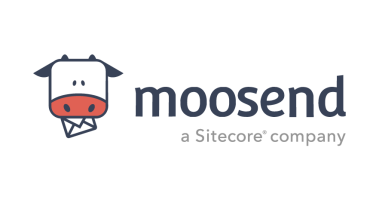
B2B sales is all about contact. It requires direct communication with the person you’re selling to. Typically you’ll talk through their current challenges before digging into the solutions your company offers – all the while creating a relationship, developing rapport and generating trust with the buyer. And, if all goes to plan, you’ll eventually move on to talking pricing and deliverables. All of which could take several meetings over the course of weeks or months.
But this part of the sales process – the actual act of ‘selling’ – accounts for just 28% of a salesperson’s time, according to Salesforce research. The rest of the time is spent inputting information into CRM systems, researching prospects, preparing for meetings and generating quotes – not to mention finding the right person to speak to and encouraging them to take a call, let alone agree to a meeting.
“The reality is that tens, if not hundreds, of hours of work go into getting to the negotiation point,” says Dr Lee Eccleshare, vice-president of market intelligence at AMPLYFI, an AI-powered market intelligence company based in Cardiff. “Sales teams have to research a particular industry, target accounts and contact the right stakeholders with personalised outreach each and every time. It’s a surprisingly archaic set of manual processes considering today’s technology.”
Sales involves a surprisingly archaic set of manual processes
That isn’t to say salespeople aren’t using tech to speed up the process; they currently use an average of 10 software tools to close deals, Salesforce research shows. And yet, the proportion of their time spent actually selling has fallen, from 34% in 2018, as the data they collect and analyse on leads and prospects has grown in both volume and complexity.
Fortunately, AI tools now have the power to revolutionise the selling process – completely automating the mundane, time-intensive tasks to enable salespeople to focus on value-added work. And there are already many vendors out there, making it more accessible than ever. HubSpot has ChatSpot, Zoho has Zia, Microsoft has Viva Sales, Salesforce has Einstein GPT; each of the major CRM players have already deployed AI tools to help sales and marketing professionals.
How AI can help sales
At this point, it’s important to note that there are two main types of AI typically used by sales teams: generative and predictive.
Generative AI helps with things like summarising calls and extracting information, such as agreed action items, and can automatically write personalised follow-up emails. It can also present key insights from calls, including competitor mentions, objection handling and pain points to help salespeople improve with every conversation. According to Eilon Reshef, co-founder and chief procurement officer at Gong, a revenue intelligence vendor based in San Francisco, using AI to surface key highlights from previous calls can save up to 80% of sales reps’ call prep time.
Predictive AI, meanwhile, does things like sales forecasting, taking human-led bias away from revenue predictions and expected deal outcomes. “AI-powered forecasting can ingest many unique buyer signals – including buyer conversations – to provide a much more accurate projection of deal outcomes,” says Reshef. Gong’s predictive AI solution, for example, uses more than 300 unique signals to predict deal outcomes with 20% more precision than algorithms based solely on CRM data, he claims.
Sales is a contact sport. And the decision-making process remains deeply personal
But the applications don’t stop there: AI can help deliver bespoke presentations to clients; cut down on research time; analyse and score leads based on various criteria to help prioritise prospective clients; and create dynamically adjusting pricing based on factors like demand and market conditions.
Then there’s audience intelligence. “AI tools can analyse your pipeline and the typical sales cycle at prospects to determine the best time to approach key contacts. It will also identify those most likely to convert,” says Claire Simpson, head of growth at tech-focused PR and marketing firm Hard Numbers.
As the market matures, more niche tech has come to the fore, such as Evolve from translation company RWS, which recently launched in beta mode. Evolve, whose early beta customers include Dell, is a linguistic tool that uses secure neural machine translation, linguist-verified quality estimation and large language models to translate complex languages with accuracy in near real-time. The tech is said to be the first ever AI capable of translating languages within specialist fields like medicine or law at local-speaker fluency. This enables sales teams dealing with international audiences to to be more efficient, according to Thomas Labarthe, president of RWS’s Language and Content Technology division.
Potential drawbacks of using AI for salespeople
But with adoption comes a barrage of new questions and dilemmas for business leaders. Sure, AI can automate many manual tasks, but are salespeople skilled enough to ‘always be closing’? And, when you can free up a big chunk of their working day to spend more time on selling, will employees feel the heat from demands for an immediate increase in ‘productivity’ (i.e. revenues)?
Sales is a contact sport. And the decision-making process remains deeply personal
Gong’s Reshef doesn’t think so. “There is a large administrative burden on salespeople today, which is putting increasing pressure on them. AI can help remove a lot of that, such as automatically updating the CRM and triangulating more accurate sales forecasts,” Reshef says. “From our experience, companies are implementing AI not to put pressure on their teams but to help them do their jobs better.”
Eccleshare from AMPLYFI agrees. “Being in a target-driven environment is always accompanied with pressure to deliver and, if anything, AI should alleviate this as sales teams unlock more time to convert sales and less time on research and admin.” However, he acknowledges that, with AI becoming more normalised in the sales process, sales targets may eventually creep up as effectiveness improves.
Prioritising the human touch
But just because salespeople have more information or insights at hand, it doesn’t necessarily mean they’ll be better at establishing trust with a buyer or having the personal skills required to secure a deal.
“Sales is, after all, a contact sport. And the decision-making process remains deeply personal. Conversion can come down to chemistry, credibility, trust – any number of human factors. In this sense, AI-enabled sales will always need humans to put its insights into action,” Simpson says.
With more automation, these soft skills will become even more vital to the job. Martin Roe, chief executive of business process outsourcing provider CCI Global, says it is “alarming” that so many companies deploy sales tech without firstly making sure their sales staff have adequate training. “Many companies become very complacent when hiring and training sales staff. Perhaps because of high turnover in these divisions,” he says.
“But truly, AI will not be able to replace the human voice, the ability for sales and customer service teams to provide genuine human empathy to problems that human customers will appreciate, and the emotional intelligence skill difference of a sales team will continue to be the key differentiator to capturing and keeping market share,” Roe says.

B2B sales is all about contact. It requires direct communication with the person you’re selling to. Typically you’ll talk through their current challenges before digging into the solutions your company offers – all the while creating a relationship, developing rapport and generating trust with the buyer. And, if all goes to plan, you’ll eventually move on to talking pricing and deliverables. All of which could take several meetings over the course of weeks or months.
But this part of the sales process – the actual act of ‘selling’ – accounts for just 28% of a salesperson’s time, according to Salesforce research. The rest of the time is spent inputting information into CRM systems, researching prospects, preparing for meetings and generating quotes – not to mention finding the right person to speak to and encouraging them to take a call, let alone agree to a meeting.
“The reality is that tens, if not hundreds, of hours of work go into getting to the negotiation point,” says Dr Lee Eccleshare, vice-president of market intelligence at AMPLYFI, an AI-powered market intelligence company based in Cardiff. “Sales teams have to research a particular industry, target accounts and contact the right stakeholders with personalised outreach each and every time. It’s a surprisingly archaic set of manual processes considering today’s technology.”





